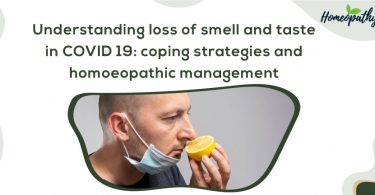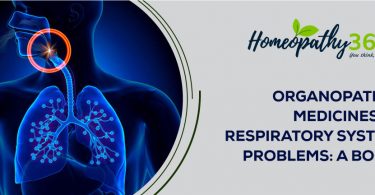Last week, I mentioned that one of the problems I see repeatedly is antibiotic use leading to recurring infections.
This week, I focus on a recurring infection that is all too familiar to many women: The UTI-from-Hell that keeps coming back time after time.
Jean started getting recurring urinary tract infections in her twenties, soon after she got married, and she seemed to get another one almost every two months.
Over the first 6 months, the antibiotics cleared them up quickly. But, after three or four UTIs, the “mild” antibiotics stopped working and Jean had to resort to stronger drugs such as Cipro and Levaquin.
However, those antibiotics come with serious warnings from the FDA.
Within about a year, Jean developed pain in her legs and feet. It took years before she made the connection, even after meeting with her OBGYN, that this was called neuropathy and tendonitis.
If Jean (or her doctor) had read the warning labels on the insert, she (they) might have understood the cause of these conditions, but Jean trusted her doctor and his assumed attention to detail.
After all, these were the tools of his trade.
Fatigue, bloating, and yeast infections were merely the first conditions she suffered during that initial year and in fact, when she looked back, she concluded she hadn’t been well since her original UTI.
But her conclusion that it was the infection that set her up for chronic illness was wrong. She hadn’t been well since the treatment of that primary UTI. This is a common mistake when folks try to figure out what happened to their health.
But the thing that bothered Jean the most was the weight gain! She had always been naturally slim and never had to watch what she ate. After her repeated infections (and subsequent antibiotic use), she had to avoid many foods that caused uncomfortable bloating and a growing girth.
Plus, despite the fact that she was eating much less than she used to, she was gaining weight! And she couldn’t exercise much because of the tendon and nerve pain.
She felt old.
She felt gypped.
Her weight gain made her feel ashamed of her body.
At that point, although Jean and her husband were hoping to start a family, she wasn’t sure she wanted to try for pregnancy because she was afraid she wouldn’t be able to handle being a mother due to the severity of her fatigue.
Jean’s health and emotional state were a mess.
Because of antibiotics.
If only Jean had been aware of natural, effective homeopathic medicines that have been known for centuries for their ability to uproot urinary tract infections without side effects and antibiotic fallout!
As I have said before, reserve the use of antibiotics for truly life-threatening conditions. (That is, if you don’t know what to do homeopathically.) And this isn’t just my opinion.
Read this:
“… Serious side effects associated with fluoroquinolone antibacterial drugs generally outweigh the benefits for patients with acute sinusitis, acute bronchitis, and uncomplicated urinary tract infections who have other treatment options. For patients with these conditions, fluoroquinolones should be reserved for those who do not have alternative treatment options.”
Who said that?
The FDA!
For those who are not from the U.S., this is the ever powerful, Federal Food and Drug Administration.
That’s right … that quote is not from some alternative health site that the mainstream medical community might label as an outlier.
No. That statement was made by the FDA as they began to recognize that with strong antibiotics — such as Cipro and Levaquin that are regularly prescribed for UTIs — the risk of harm often outweighs the good.
Read their entire warning yourself: https://www.fda.gov/Drugs/DrugSafety/ucm500143.htm
Stunning, isn’t it?
But this is not new to homeopaths. We’ve known for over two centuries that drugs do harm. That at best, they kick the can down the road and at worst (and most commonly), cause new, unintended chronic illness.
This means there is a trade-off that is not only unintended, but undisclosed, long-term and even potentially life-altering.
As the words “alternative treatment options” from that article reverberate in our heads, you may be wondering how have I uprooted recurring UTIs without resorting to antibiotics?
Well, my favorite method is the Banerji protocol of Medorrhinum 200c, twice a day (in severe cases, every three hours). If there is a fever present, I add Pyrogenium200c, once a day. And unlike with antibiotics, that protocol comes with no risk of ruptured tendons, neuropathy, muscle pain, or fatigue.
As is common in teaching these protocols, I must make it clear that this particular protocol is not the only one I use. There are others, which depend on the symptoms and circumstances. For example, if Jean had repeated UTIs as the result of intimate relations, we’d have to consider Staphasagria 200ck. Without the presence of fever, we’d likely add Cantharis 30c.
You get the idea. There’s a little more to this than just the remedies listed here. Which is why, of course, it requires a course for a more in-depth understanding of how to effectively address and treat the issue.
When concerned that an acute UTI may be more complicated or serious than you feel capable of handling, and as I have recommended repeatedly (including in podcasts), you can always drive to your local emergency room and sit in the parking lot while you wait for the remedy to act.
Bring a pack of cards or a good book along with your remedies, and relax. Listen to some music. You’ll have the peace of mind knowing you can allow the remedy to take effect while staying close to traditional medical assistance if needed.
P.S. I want nothing more than for you to be educated about “alternative treatment options” for many different infections. And that’s exactly what my new course, The Antibiotic Alternative, is designed to do. If you’re eager for me to teach you how to avoid antibiotic fallout for other infections by giving you practical, proven homeopathic protocols, please click here!
Owning this information might be one of the most important things you do for yourself and your family; for infections, as they present as well as protection from ubiquitous antibiotic fallout.





